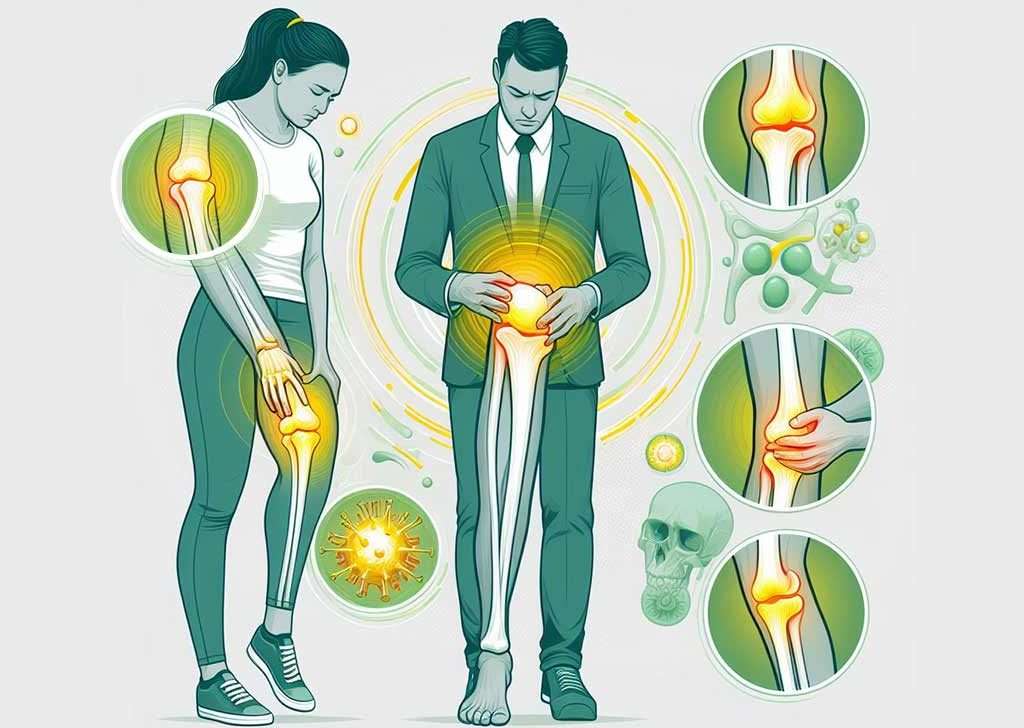
Heart diseases is a leading cause of death globally due to cardiac issues and blockages in arteries. It is important to understand the risk factors associated with heart disease for prevention and early intervention.
Heart disease can manifest in various forms, such as coronary artery disease, heart attacks, or heart failure. Factors contributing to heart disease include high blood pressure, high cholesterol, smoking, obesity, and lack of physical activity. Recognizing symptoms like chest pain, shortness of breath, and fatigue can prompt timely medical attention.
Lifestyle changes such as regular exercise, healthy diet, and stress management can help prevent heart disease. Early detection through screenings and regular check-ups plays a crucial role in managing heart health effectively.
Understanding Heart Diseases
Heart diseases are a serious health concern affecting millions globally. Understanding these conditions is paramount for prevention and management.
Common Types
- Coronary artery disease
- Heart failure
- Arrhythmia
- Valvular heart disease
Risk Factors
- High blood pressure
- High cholesterol
- Smoking
- Obesity
Coronary artery disease is the most prevalent type, causing blockages in the arteries supplying the heart. Heart failure indicates the heart’s inability to pump blood effectively. Arrhythmia refers to irregular heart rhythms, while valvular heart disease affects the heart valves’ functionality.
Common risk factors include high blood pressure, elevated cholesterol levels, smoking, and obesity. These factors play a significant role in the development of heart diseases.
Healthy Heart Habits
Developing healthy heart habits is essential for promoting cardiovascular wellness and overall well-being. By adopting simple lifestyle changes, you can significantly reduce your risk of heart disease. Let’s explore some key aspects of Healthy Heart Habits:
Balanced Diet
Eating a variety of nutrient-rich foods like fruits, vegetables, and whole grains supports heart health. Limit intake of saturated fats and added sugars to maintain a balanced diet.
Exercise Routine
Regular physical activity is vital for a healthy heart. Engage in aerobic exercises like walking or cycling to strengthen the heart muscle and improve overall cardiovascular fitness.
Preventive Measures
Preventing heart disease is vital for maintaining a healthy heart and overall well-being. Adopting preventive measures can greatly reduce the risk of developing heart issues. Below are essential steps you can take to prevent heart disease.
Regular Check-ups
Regular check-ups play a crucial role in preventing heart disease. Visiting your healthcare provider for routine check-ups allows for early detection of any potential risk factors such as high blood pressure, high cholesterol, or diabetes. These health conditions, when identified early, can be managed effectively, reducing the risk of heart disease.
Stress Management
Effective stress management is key to preventing heart disease. Engaging in stress-reducing activities such as meditation, yoga, or deep breathing exercises can significantly lower the risk of developing heart problems. Chronic stress can contribute to high blood pressure and other risk factors associated with heart disease, making stress management an essential preventive measure.
Treatment Options
Treating heart disease requires a comprehensive approach that may involve lifestyle modifications, medications, or surgical interventions. The most suitable treatment option for you will depend on your specific condition and its severity. In this section, we will explore the different treatment options available for heart disease patients.
Medication
Medications play a crucial role in managing heart disease, helping to control symptoms, prevent complications, and improve overall heart function. Your healthcare provider may prescribe one or a combination of medications based on your individual needs. Some common medications used in the treatment of heart disease include:
- Statins: These drugs help lower cholesterol levels, reducing the risk of plaque buildup in the arteries.
- Beta blockers: These medications slow down the heart rate and lower blood pressure, relieving the workload on the heart.
- Antiplatelet drugs: These help prevent blood clots from forming by reducing the stickiness of platelets.
- ACE inhibitors: These medications widen blood vessels, improving blood flow and lowering blood pressure.
- Diuretics: These drugs help eliminate excess fluid from the body, reducing swelling and lowering blood pressure.
- Anticoagulants: These medications thin the blood and prevent the formation of dangerous blood clots.
It is essential to take all prescribed medications as instructed by your healthcare provider and attend regular follow-up appointments to monitor their effectiveness.
Surgical Interventions
In some cases, medication alone may not be sufficient to treat heart disease effectively. Surgical interventions may be recommended to restore blood flow, repair damaged heart tissue, or correct structural abnormalities. Here are some common surgical procedures used in the treatment of heart disease:
- Coronary artery bypass grafting (CABG): This procedure involves bypassing blocked or narrowed arteries using blood vessels from another part of the body. CABG improves blood flow to the heart muscle.
- Angioplasty: Also known as percutaneous coronary intervention (PCI), this procedure involves using a balloon-like device to widen narrowed arteries and improve blood flow.
- Stent placement: After angioplasty, a metal or mesh tube called a stent may be inserted to help keep the arteries open and prevent them from narrowing again.
- Heart valve repair or replacement: Damaged or malfunctioning heart valves may require repair using surgical techniques or replacement with artificial or biological valves.
- Heart transplant: In severe cases, when the heart is no longer functioning properly, a heart transplant may be necessary. This involves replacing the diseased heart with a healthy donor heart.
Your healthcare team will carefully evaluate your condition and determine the most suitable surgical interventions for you, taking into consideration factors such as your overall health and the extent of your heart disease.
In conclusion, treating heart disease involves a combination of lifestyle modifications, medications, and surgical interventions. It is crucial to work closely with your healthcare provider to develop a personalized treatment plan that best suits your needs and improves your heart health.
Support And Care
Dealing with heart disease can be overwhelming, but with the right support and care, managing the condition becomes much easier. In this section, we will discuss the crucial aspects of support and care, including lifestyle adjustments and emotional well-being. By making these vital changes, individuals with heart disease can improve their quality of life and enhance their overall health.
Lifestyle Adjustments
Making certain lifestyle adjustments is key to managing heart disease effectively. By adopting a heart-healthy lifestyle, individuals can reduce the risk of complications and improve their heart’s condition. Here are some adjustments to consider:
- Eat a nutritious diet: Focus on incorporating fruits, vegetables, whole grains, lean proteins, and healthy fats into your meals.
- Exercise regularly: Engage in activities such as walking, swimming, or cycling for at least 30 minutes a day to keep your heart strong and maintain a healthy weight.
- Quit smoking: Smoking is a major risk factor for heart disease, so it’s crucial to kick the habit to protect your heart.
- Limit alcohol consumption: Excessive alcohol intake can contribute to heart problems, so moderate your alcohol consumption and aim to stay within recommended limits.
- Manage stress: Find effective stress-management techniques such as meditation, deep breathing exercises, or engaging in hobbies that help you relax and unwind.
Emotional Well-being
When dealing with heart disease, it’s not just physical health that should be considered. Emotional well-being plays a significant role in managing the condition and reducing the risk of complications. Here are some strategies to promote emotional well-being:
- Build a support network: Surround yourself with loved ones who can provide emotional support and understanding throughout your journey.
- Join a support group: Connect with individuals who share similar experiences and challenges, as this can provide a sense of belonging and the opportunity to exchange advice.
- Seek professional support: If needed, reach out to healthcare professionals, psychologists, or counselors who specialize in heart disease to receive additional guidance and coping strategies.
- Practice self-care: Prioritize self-care activities that you enjoy, such as taking a relaxing bath, reading a book, or spending time in nature. Taking care of yourself can greatly contribute to your emotional well-being.
In conclusion, support and care are essential components for effectively managing heart disease. By adjusting one’s lifestyle to incorporate healthier habits and prioritizing emotional well-being, individuals can improve their overall health and thrive with heart disease.
Frequently Asked Questions For Heart Diseases
What Are The 4 Types Of Heart Disease?
The four types of heart disease include coronary artery disease, arrhythmia, heart failure, and congenital heart defects. Each type affects the heart’s function and structure in different ways.
How Long Can Someone Live With Heart Disease?
Heart disease life expectancy varies, depending on treatment and lifestyle. With proper care, many can live a long, fulfilling life.
Can You Recover From Heart Disease?
Yes, recovery from heart disease is possible with lifestyle changes, medication, and sometimes surgical interventions. Regular exercise and a healthy diet are key factors in improving heart health.
What Are 2 Warning Signs Of Heart Disease?
Two warning signs of heart disease are chest pain or discomfort and shortness of breath. If you experience these symptoms, seek medical attention.
Conclusion
Taking proactive steps to maintain heart health can significantly reduce the risk of developing cardiovascular diseases. With the right lifestyle choices, including regular exercise, a balanced diet, and stress management, it’s possible to safeguard the heart against potential risks. It’s important to prioritize heart health to live a long and healthy life.





